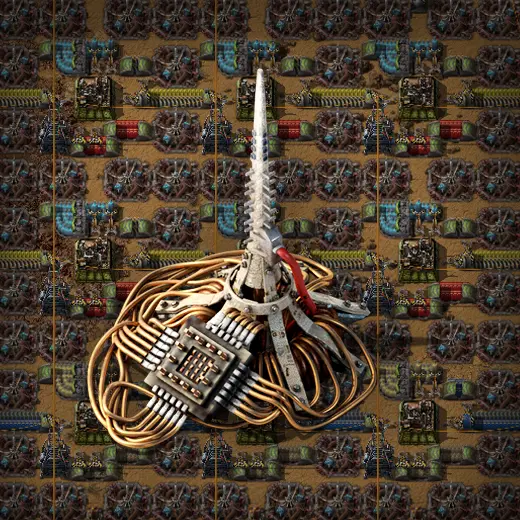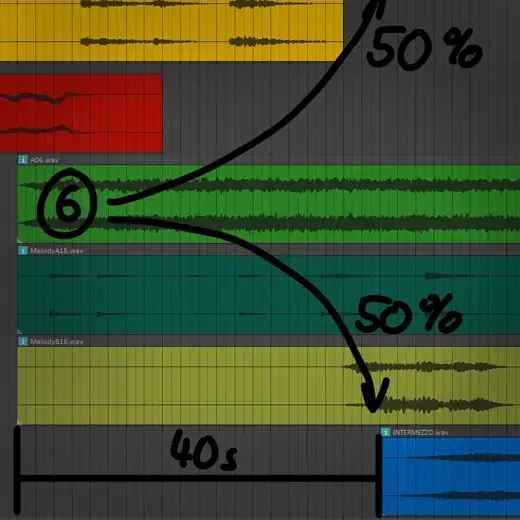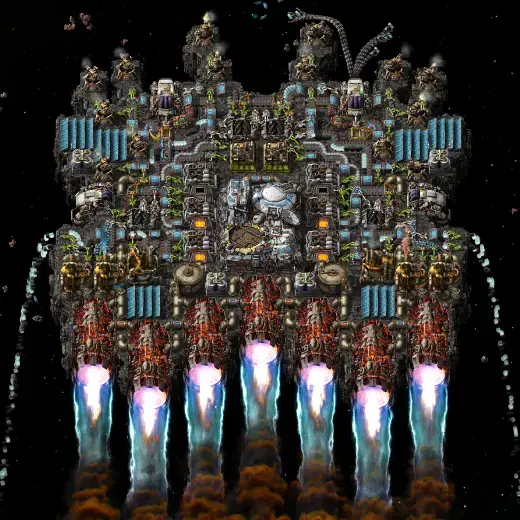Ananace
Just another Swedish programming sysadmin person.
Coffee is always the answer.
And beware my spaghet.
- 23 Posts
- 64 Comments

 1·7 months ago
1·7 months ago“We interrupt your regular scheduling to bring you this additional bit of Factorio hype.”
Flatpak uses OSTree - a git-like system for storing and transferring binary data (commonly referred to as ‘blobs’), and that system works by addressing such blobs by hashes of their content, using Linux hardlinks (multiple inodes all referring to the same disk blocks) to refer to the same data everywhere it’s used.
So basically, whenever Flatpak tells OSTree to download something, it will only ever store only copy of that same object (.so-file, binary, font, etc), regardless of how many times it’s used by applications across the install.
Note that this only happens internally in the OSTree repo - i.e./var/lib/flatpakor~/.local/share/flatpak, so if you have multiple separate Flatpak installations on your system then they can’t automagically de-duplicate data between each other.
A lot of that data doesn’t actually exist, ostree hardlinks data blobs internally, so the actual size on disk is much smaller than most disk usage tools will show.
Let me tell you about Bumblebee and their issue #123, though that one’s even worse seeing as installing system packages are done as root.
(Their install/update commands included
rm -rf /usr /lib/nvidia-current/xorg/xorg)

 1·7 months ago
1·7 months agoProbably not what you’re looking for, but I’m going to note that Turris make some great OpenWRT routers.
Currently running theTurris Omnia, and using both Wireguard and Yggdrasil through it.
I’ve been personally using KDEs Itinerary app, but it might not be what you’re looking for
Not really, WSL seems like it was mainly supposed to stop people leaping ship to be able to develop Node without the horribly painful Windows JS experience. And wouldn’t you know it, Microsoft has been making their own JavaScript language in Typescript.
“It’s a ndiswrapper miracle!” - a statement only uttered by the completely deranged.
Amusingly enough, one of the HP laptops I used in that era actually worked better with ndiswrapper somehow.
It was the only one to do so though.

 3·7 months ago
3·7 months agoDefinitely the third / middle left, but the bottom right definitely gets second place to me.
Not a major fan of too abstract art, and those are just both so serene.
People love to complain about CMake, often with valid complaints as well. But it - to this day - remains the only build system where I’ll actually trust a project when they say they are cross-platform.
Being the Windows maintainer for OpenMW, it used to be absolute hell back a decade and half ago when an indirect dependency changed - and used something like SCons or Premake while claiming to be “cross-platform”, used to be that I had to write my own build solutions for Windows since it was all hardcoded against Linux paths and libraries.
CMake might not be the coolest, most hip, build system, but it delivers on actually letting you build your software regardless of platform. So it remains my go-to for whenever I need to actually build something that’s supposed to be used.
For personal things I still often hack together a couple of Makefiles though, it’s just a lot faster to do.

 3·7 months ago
3·7 months agoIt’s basically just a copy of the main leaderboard, but the scores are given based on the size of the group.
It could be interesting with something like the old Pharaoh game and its receding riverbed farming, but you’d have to balance that compared to costs of resourcing in Factorio - or offer some reasonably simple way for the player to protect their resourcing operations against the rising lava.
My guess is that drilling is going to cause the Vulcanus-version of pollution, since it makes sense that a volcanic planet wouldn’t have much problem with regular pollution.

 15·7 months ago
15·7 months agoMy favourite advent calendar.
Got a private leaderboard with the other sysadmins from work - as well as a few people from our application/development team.

 3·7 months ago
3·7 months agoWe’ve recently kicked out our entire Cisco networking core due to it actively refusing to interoperate with other pieces of necessary hardware for us, which was causing us to have to run an almost entire second redundant core network. Switching it out with ALE has been really nice in that regard, SPB scales like a dream even between locations and cities, we even get working L2 routes all the way over to some of our locations almost half a country away.
For us, Dell has been the far better of the two (HPE/Dell) big server-providing beasts in terms of just being able to use the hardware they provide, but they’re very close to getting a complete block from future procurement due to how they’ve been treating us.
Honestly, Fujitsu is probably our best current provider; their hardware is reasonably solid, their rack-kits aren’t insane, their BMC doesn’t do a bunch of stupid things, they don’t do arbitrary vendor locking on expansion cards, etc. Unfortunately their EFI/BIOS is a complete mess, especially in regards to boot ordering and network boot, and they’ve so far not been able to provide us Linux-based firmware upgrade packages - despite using a RHEL image in their BMC-orchestrated offline firmware upgrade process.

 6·7 months ago
6·7 months agoGot a pair of old HPE gen8 1U servers that are chewing through fan packages like nobody’s business, replaced at least five burnt-out fans on them in a similar amount of years.
We’re running a mix of HPE, Dell, and Fujitsu servers and they all absolutely suck in their individual ways - HP(E) adds a bunch of arbitrary hardware limitations which we have to work around, Dell intentionally degrades our multi-system setups with firmware updates, and Fujitsu’s boot firmware goes absolutely pants-on-head retarded if you’re doing netboot first.
We’ve gotten some Supermicro systems now as well, and they’ve been a real treat in comparison, though their software UX feels like it’s about two decades behind.

 51·8 months ago
51·8 months agoIt’s great to hear that they’re not just giving up. And it’s also definitely good to hear that they’re not sticking with PHP either, that language is a true bane to modern hosting - and especially Kubernetes.
I’ll remain cautiously optimistic that they’ll be able to stay relevant, and not go hard in again on cutting away core functionality in the name of enterprise offerings - what caused the NextCloud split in the first place.

 28·8 months ago
28·8 months agoHas anything actually happened in ownClouds development?
The last I saw of them was FOSDEM a few years back, where NextCloud were handing out whitepapers and showing off their new Hub, chat, VoIP stack, group sharing system, and more. And ownCloud were sat somewhat opposite with two people and a screen showing a screenshot of a default ownCloud install, along with a big sign hanging from the ceiling saying “Join the winning team.”





















I can already imagine so many fun ways this could be used.